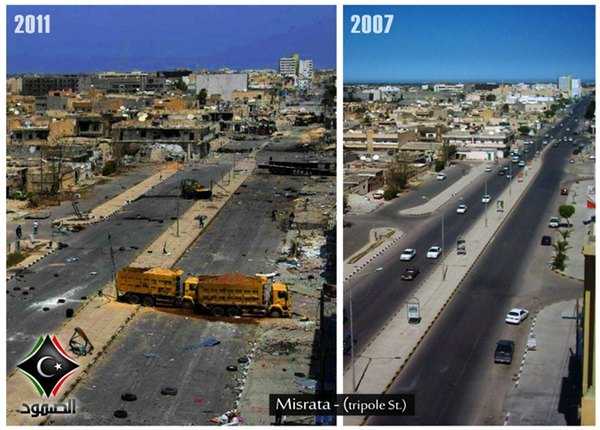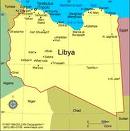AL SHARPTON
JF-Expert Member
- Feb 6, 2014
- 2,797
- 952
I quite appreciate the points you have raised. Based on what you have posted, it seems that Libya under Col. Gadhaffi is still an enigma to all of usBelow, Nizar Mhani (Niz Ben-Essa) of the Free Generation Movement responds to common misconceptions relating to the Gaddafi regime.
Follow FGMovement on Facebook, and FGMovement on Twitter.
There are no electricity bills in Libya; electricity is free for all its citizens.Categorically untrue. Despite poor electricity infrastructure and poor coverage of electricity lines, even in the Capital, Libyan home owners pay monthly/quarterly (area dependant) electricity bills based on meter readings. Electricity is cut off in instances of unpaid bills. Reconnection upon payment is not instant. The electric infrastructure is weak and some areas of Libya do not have electricity available at all.
There is no interest on loans..
banks in Libya are state-owned and loans given to all its citizens at 0% interest by law.
Categorically untrue. Banks all over Libya have been giving out loans for years and years. There is a percentage rate charge on all loans, which is comparable to an interest rate, but in the spirit of ‘islamic ethics' it is not called interest, it is called an ‘Administrative Expense' – Masareef Edareeya.
.A House is considered a human right in Libya ¬
Gaddafi vowed that his parents would not get a house until everyone in Libya had a home. Gaddafi¹s father has died while he, his wife and his mother are still living in a tent.Gaddafi abused this human right as much as he did other basic rights. It is well known in Libya that political opponents and successful business men/women had their homes confiscated and handed over to regime members, usually rewards for Free Officers – Dubat A7rar. Many farms and homes and businesses were confiscated during three infamous phases of Libyas dictatorial history:1969 – The dreaded Green Revolution. Free Officers were rewarded land, homes, and farms that sometimes belonged to other people and the original owners were not compensated or asked if this was ok.Late 70's - The introduction of the law Albayt le Sakinehee – The Home Belongs to its Dwellers. As this law was passed overnight, thousands of homeowners instantly lost their homes, as tenants (those renting the homes) claimed ownership on account of being the ‘dwellers'. The law applied to homes, farms, shops, etc.90's - The introduction of Purification Committees (Lejnat al Tatheer). This committee ran by the widely know slogan, ‘Min ayna laka hada?' – "From where did you obtain this?", a form of ultra-socialism where people's possessions, including homes and businesses, were confiscated if seen to be ‘surplus to requirement' or contributing to a ‘monopoly'.Regarding Gaddafis ‘vow': While Gaddafi waited for ‘everyone in Libya' to be housed, he himself lived in a sprawling 6km square compound in the centre of the capital which was home to state of the art security and an underground network of rooms and ultramodern bunkers. He also had a vast and well known farm on Airport Road in Tripoli. This, just in the capital
All newlyweds in Libya receive $60,000 Dinar (US$ 50,000 ) by the government to buy their first apartment so to help start up the family.
This is a well known rumour and a common joke in Libya. Whilst it may have been passed as official legislation, I know of not a single family who has been given this grant. The backbreaking bureaucracy associated with such grants and loans make them more or less impossible to obtain.
.Education and medical treatments are free in Libya. Before Gaddafi only 25% of Libyans are literate. Today the figure is 83%.Education and Health Care – Free does not mean adequate. It is well known that Libya's standard of health care is nothing short of appalling. It is widely known that the majority of Libyans seeking medical care leave for neighbouring countries for treatment. Our Education system is no better. It is outdated, teachers are underpaid and under-trained and libraries are largely non-existent. The syllabus was constantly being revised and reviewed under direct instruction from the former regime e.g. banning English, changing Quranic verses, etc.It is commonly said that Libyans would be happy to forfeit their ‘free health care' and pay for a National Health Service if it was up to the required standard.
Should Libyans want to take up farming career, they would receive farming land, a farming house, equipments, seeds and Livestock to kick- start their farms all for free.This has never happened, in addition to this many farms and homes have been confiscated by the government to build railroads, The Great Man Made River and civil roads.The owners of the land were only compensated if there was a covered structure on the land as the Gaddafi regime legally owned any land and the people were only allowed to build on it. When there was compensation offered it was nowhere near the actual value of the property and many waited years to receive anything if at all. This system was also rife with co Less..





